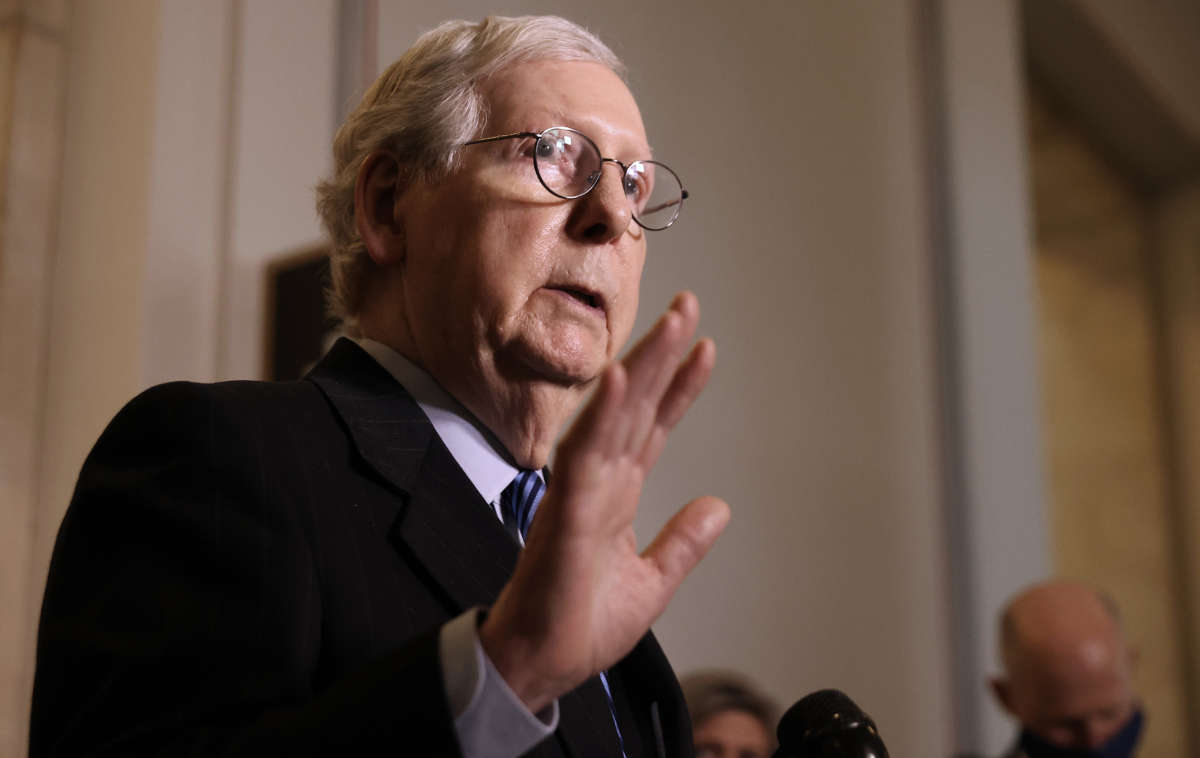Senate Minority Leader Mitch McConnell has recently been sounding the alarm that Democrats may plan to try to reform the filibuster. McConnell argues that senators need to “put principle first and keep the Senate safe.”
McConnell recounts that back “[i]n 2017 and 2018, a sitting president lobbied [him] to do exactly what Democrats want to do now,” yet he “said no” because “[b]ecoming a U.S. senator comes with higher duties than steamrolling any obstacle to short-term power.”
McConnell seems to forget that he himself played a part in reforming the filibuster back in 2017 when he eliminated its use on Supreme Court nominees. After stonewalling the consideration of Merrick Garland for appointment to the Supreme Court during the presidency of Barack Obama and then pushing for filibuster reform during the presidency of Donald Trump to clear a path for Neil Gorsuch (and later Brett Kavanaugh and Amy Coney Barrett), conservative justices now wield a 6-3 majority.
Of course, McConnell claims that his 2017 decision to reform the filibuster was simply taking “the Reid precedent to its logical conclusion.” This is a reference to then-Senate Majority Leader Harry Reid’s decision to reform the filibuster back in 2013 by eliminating its use on all presidential nominees except those to the Supreme Court. Reid’s decision to reform the filibuster isn’t really much of a precedent, however, as the filibuster had previously been reformed several times in the past.
For instance, in 1917, the Senate adopted a rule allowing a two-thirds supermajority to end debate and force a vote. This reform came about at the behest of then-president Woodrow Wilson who was frustrated with the repeated use of the filibuster.
In 1974, the Senate further restricted the use of the filibuster by limiting debate to 20 hours when attempting to pass a budget-related bill using the “reconciliation” process. Essentially, this means that reconciliation bills cannot be filibustered, as debate cannot continue indefinitely. Notably, this process has been used by both parties to ram through major legislative victories along party lines. While Democrats cheer on President Joe Biden’s $1.9 trillion COVID relief bill, Republicans still celebrate Trump’s 2017 tax cuts.
In 1975, senators reduced the two-thirds supermajority required to end debate to “three-fifths of the Senators duly chosen and sworn,” which amounts to 60 when there are no Senate vacancies.
McConnell argues that if “Democrats shortsightedly decide to reduce the Senate to majority rule, we’ll have lost a key safeguard of American government.” Setting aside the fact that McConnell has been a willing participant in moving the Senate closer to majority rule, it seems that he is trying to equate protecting the filibuster with protecting democracy itself. However, the filibuster is not necessary to protect democracy; indeed, it has often been used to undermine it.
According to McConnell, the filibuster’s 60-vote threshold is “a feature, not a bug.” However, the filibuster is not in the U.S. Constitution, and it only became part of the Senate’s rules because of a mistake. In order to correct this mistake, senators have, at several points throughout history, voted to limit their own use of the filibuster. Further reform, such as adopting a “talking filibuster” (which both Biden and centrist Sen. Joe Manchin seem to endorse) or simply abolishing the filibuster altogether (which progressives have long been advocating), would bring the federal government closer in line with many U.S. states and democratic countries around the world — the majority of which don’t allow for any filibustering whatsoever.
McConnell is sometimes characterized as an institutionalist whose first priority is to preserve the sanctity of the Senate. In reality, his defense of the filibuster is a one-part faux cautionary tale meant to convince the American public that doom will follow any attempt at change and one-part smokescreen meant to conceal his own machinations.
Media that fights fascism
Truthout is funded almost entirely by readers — that’s why we can speak truth to power and cut against the mainstream narrative. But independent journalists at Truthout face mounting political repression under Trump.
We rely on your support to survive McCarthyist censorship. Please make a tax-deductible one-time or monthly donation.
